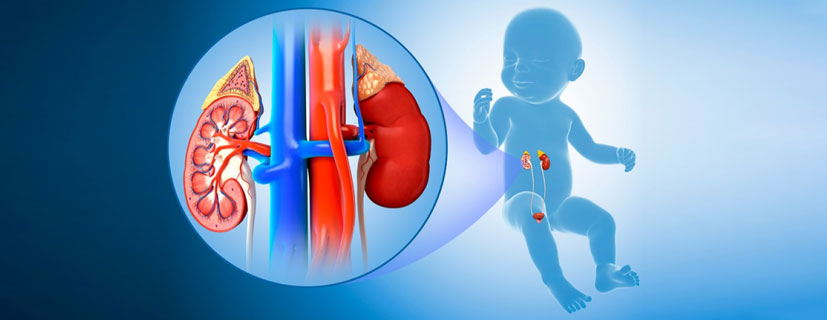Book Appoinment
Pediatric Urology


Pediatric urology is a specialized branch of medicine that focuses on the diagnosis and treatment of urinary tract and genital system disorders in children. Pediatric urologists are trained to manage a wide range of conditions that affect the urinary system, including the kidneys, bladder, ureters, and urethra, as well as the genitalia.
Here are some common pediatric urological conditions and procedures:
- Urinary Tract Infections (UTIs): UTIs are common in children and can involve the bladder, kidneys, or both. Pediatric urologists play a role in diagnosing and managing recurrent or complicated UTIs to prevent long-term complications.
- Vesicoureteral Reflux (VUR): VUR is a condition where urine flows backward from the bladder into the kidneys. It can lead to recurrent UTIs and kidney damage. Pediatric urologists may recommend monitoring, medication, or surgical correction of VUR, depending on its severity.
- Hydronephrosis: Hydronephrosis refers to the dilation or swelling of the kidneys due to urinary obstruction. Pediatric urologists evaluate the underlying cause and provide appropriate treatment, which may include surgical intervention to relieve the obstruction.
- Undescended Testicles (Cryptorchidism): In this condition, one or both testicles fail to descend into the scrotum. Pediatric urologists can assess the situation, monitor the condition, and perform surgical correction if necessary to prevent complications and ensure proper testicular development.
- Hypospadias: Hypospadias is a congenital condition where the opening of the urethra is located on the underside of the penis instead of the tip. Pediatric urologists perform surgical repair to reposition the urethral opening to the normal location.
- Epispadias: Epispadias is a rare condition where the urethral opening is located on the upper side of the penis. Pediatric urologists perform surgical correction to reposition the urethral opening and reconstruct the genitalia.
- Bladder and Bowel Dysfunction: Pediatric urologists assist in the evaluation and management of bladder and bowel dysfunction, including conditions such as urinary incontinence, urinary urgency, and fecal incontinence.
- Congenital Anomalies: Pediatric urologists diagnose and treat various congenital abnormalities of the urinary and genital systems, such as renal agenesis, posterior urethral valves, bladder exstrophy, and cloacal malformations.
- Minimally Invasive Surgery: Pediatric urologists are skilled in performing minimally invasive procedures, including laparoscopy and robotic surgery, for conditions such as nephrectomy, pyeloplasty, and ureteral reimplantation. These techniques offer smaller incisions, reduced pain, faster recovery, and better cosmetic outcomes.
